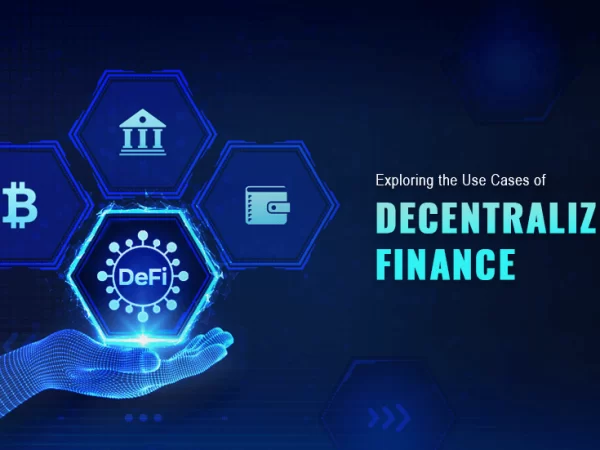Decentralized Finance (DeFi) represents a paradigm shift in the financial world, harnessing the power of blockchain technology to democratize finance. Read More
As we explore the future of DeFi, it’s crucial to understand how it’s reshaping the cryptocurrency markets and the broader financial landscape. This blog delves into the potential trajectories of DeFi and its transformative impact.
The Emergence of DeFi
DeFi refers to an ecosystem of financial applications built on blockchain networks, predominantly Ethereum. These applications aim to replicate and innovate on traditional financial services like borrowing, lending, and trading but in a decentralized manner, eliminating the need for intermediaries like banks or brokers.
Key Innovations in DeFi
- Smart Contracts: The backbone of DeFi, these self-executing contracts with the terms of agreement directly written into code, facilitate trustless and automated financial transactions.
- Decentralized Exchanges (DEXs): DEXs allow users to trade cryptocurrencies directly with each other, enhancing security and reducing reliance on centralized entities.
- Yield Farming and Liquidity Mining: These are investment strategies that incentivize users to lock up their assets in a DeFi protocol in exchange for interest or new tokens.
DeFi’s Impact on Cryptocurrency Markets
- Increased Adoption of Cryptocurrencies: DeFi has led to increased adoption and acceptance of cryptocurrencies as it demonstrates practical, real-world applications beyond mere speculation.
- Innovation in Financial Products: The introduction of novel financial products and services in DeFi, such as synthetic assets and decentralized insurance, expands the utility and appeal of the cryptocurrency market.
- Greater Liquidity: DeFi protocols have introduced new ways to utilize cryptocurrency holdings, increasing market liquidity and stability.
The Challenges Facing DeFi
- Regulatory Uncertainty: The explosive growth of DeFi has caught the attention of regulators worldwide. The challenge lies in regulating these decentralized entities without stifling innovation.
- Scalability and Interoperability: As DeFi grows, scalability issues of underlying blockchain networks and interoperability between different DeFi protocols become critical concerns.
- Security Risks: The nascent nature of DeFi and the complexity of smart contracts lead to security vulnerabilities, highlighted by several high-profile hacks and exploits.
The Future Trajectory of DeFi
- Mainstream Adoption: We can expect further integration of DeFi applications into traditional finance, potentially leading to a more inclusive and efficient financial system.
- Enhanced User Experience: To attract a broader audience, DeFi platforms are likely to focus on improving user interfaces and simplifying user experiences.
- Sustainable and Ethical Finance: DeFi could lead the way in promoting sustainable and ethical financial practices by enabling transparent, community-governed financial services.
DeFi’s Role in Financial Inclusion
- Access to Financial Services: DeFi has the potential to provide access to financial services for the unbanked and underbanked populations, particularly in regions with limited access to traditional banking.
- Democratization of Finance: By removing intermediaries, DeFi lowers the barriers to entry for various financial services, democratizing access to capital and investment opportunities.
Conclusion
The future of DeFi is poised to be a transformative force in the financial sector and the cryptocurrency markets. Its potential to democratize finance, introduce innovative financial products, and enhance the utility of cryptocurrencies is unparalleled. However, the journey ahead is complex, fraught with challenges ranging from regulatory hurdles to technological and security issues. Navigating these will be key to realizing the full potential of DeFi and its role in shaping the future of finance.

